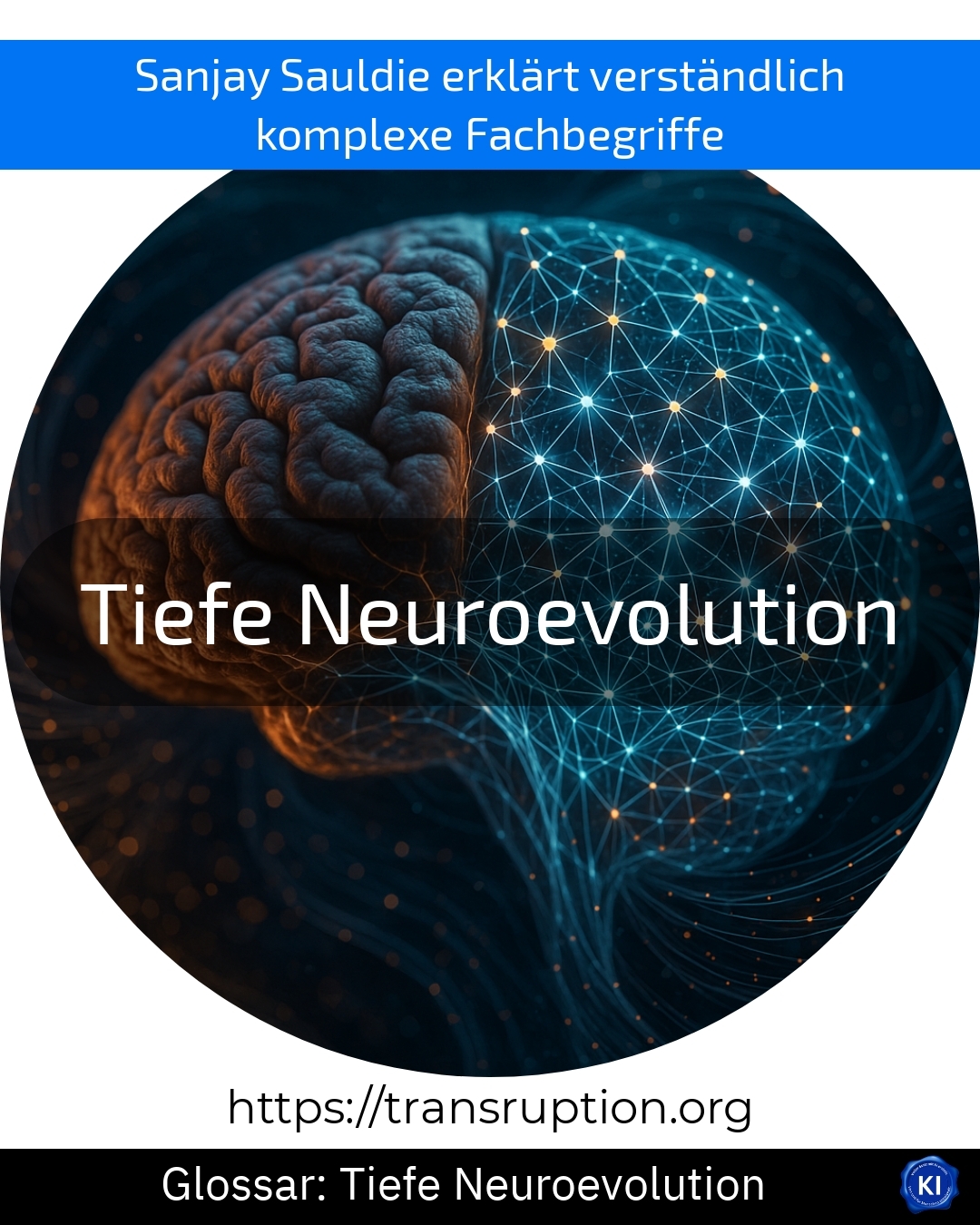Deep neuroevolution is a term from the fields of artificial intelligence, automation and industry and Factory 4.0. It describes an innovative process in which the methods of evolution - i.e. trial and error, further development and selection of the best solutions - are used to automatically improve artificial neural networks.
Instead of being programmed by humans by hand, the algorithms in deep neuroevolution develop virtually autonomously. This works in a similar way to nature: different versions of a program compete against each other and the most successful ones are used for the next round and further optimised.
An illustrative example: In a factory, robots have to perform complex tasks, such as precisely assembling different parts. Thanks to deep neuroevolution, the robots learn independently over time how to optimise their movements and processes - and thus master tasks that previously only humans could do.
Deep neuroevolution makes artificial intelligence more flexible and particularly strong when a lot of trial and error is required. It can automate processes that were previously considered too complicated and opens up new possibilities for modern industry.















